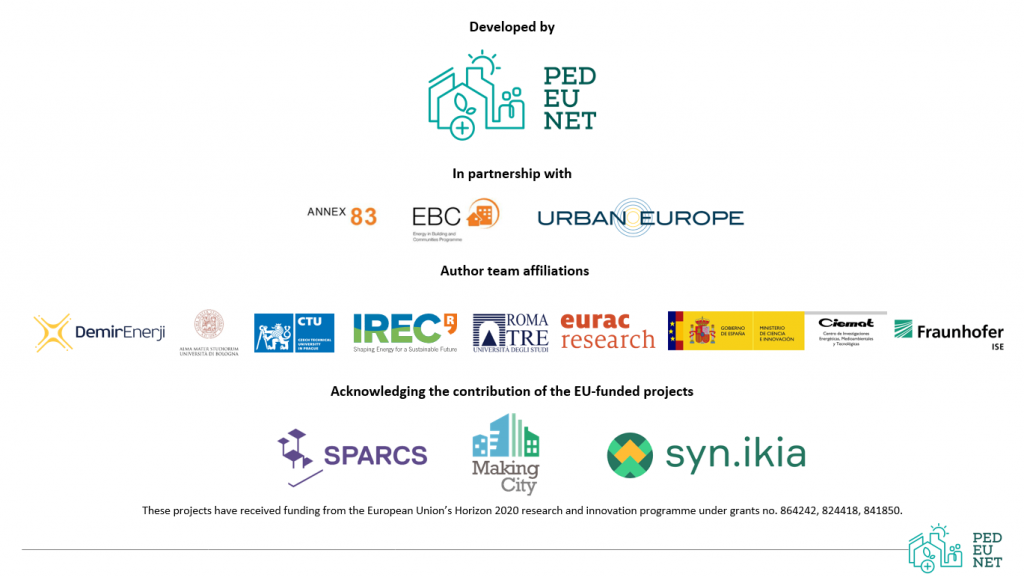| D1P001: Name of the project | |
| D1P001: Name of the project | GRETA - GReen Energy Transition Actions |
| D1P002: Project assigned code | |
| D1P002: Project assigned code | ID:101022317 |
| D1P003: Start date | |
| D1P003: Start date | 05/21 |
| D1P004: End date | |
| D1P004: End date | 10/23 |
| D1P005: Ongoing project | |
| D1P005: Ongoing project | Yes |
| D1P006: Funding programme/financing model | |
| FP7/H2020/HEU/DUT | yes |
| FP7/H2020/HEU | H2020-LC-SC3-CC-1-2018-2019-2020 - Social Sciences and Humanities (SSH) aspects of the Clean-Energy Transition |
| Interreg | no |
| National funding | no |
| Public-Private Partnership - please specify | no |
| Other | no |
| D1P007: Estimated project costs (Mill. €) | |
| D1P007: Estimated project costs (Mill. €) | 3 |
| D1P008: Description of project objectives/concepts | |
| D1P008: Description of project objectives/concepts | The assumption from which GRETA project starts is that active citizenship can become a key means in the energy system to share resources and reduce consumption. Energy citizenship refers to active public participation in clean energy transition, for example through behavioural change and renewable energy adoption, the collective effect of which could lead to significant carbon emissions’ reduction. The EU-funded GRETA project will conduct research to develop models and frameworks that reveal factors impacting both individual and collective energy citizenship actions. The project has five objectives: (1) to understand who energy citizens are; (2) to understand how energy citizens act and interact; (3) to develop and test behavioural strategies, approaches and models for facilitating energy citizenship; (4) to realize impact by scaling approaches from local to regional, national, and supranational levels; (5) to improve the policymaking process. |
| D1P009: Description of project upscaling strategies/potential | |
| D1P009: Description of project upscaling strategies/potential | GRETA studies the social side of the energy transition, understanding how energy citizenship works in energy communities place in different contexts and geographical levels and what kind of knowledge, social structures, technology or financial resources are needed to make an active energy citizen. Citizens in these communities will adopt renewable energy, use electric vehicles, monitor their energy consumption and participate in the sustainable planning of mobility both within their cities and internationally. GRETA will foster energy transition through two main tools: Community Transition Pathways (CTPs) - that are innovative mechanism to supported the transition between the different states of citizens participation and that guide cities towards decarbonization. The project investigates how CTPs can strengthen and regulate relationships between actors involved in the transition through Energy Citizenship Contracts (ECCs) definition. Contracts are the operational result of pathways, i.e. tools through which communities, local stakeholders and institutional actors can mutually recognize roles and benefits. Research results will be employed to inform and suggest policies at different levels (European, national, regional, municipal) and to support energy citizenship in a transversal way on different sectoral policies. |
| D1P010: Number of PED case studies in the project | |
| D1P010: Number of PED case studies in the project | 5 |
| D1P011: Case Study | |
| D1P011: Case Study | |
| D1P012: Description of project expected impact | |
| D1P012: Description of project expected impact |
|
| D1P013: Standardization efforts | |
| D1P013: Standardization efforts | Community Level Indicators (CLIs) - in development |
| D1P014: Sources | |
| D1P014: Sources | |
| D1P015: Can you specify a suitable contact person regarding the load-management approach within your PED project? | |
| Name | Prof. Danila Longo |
| danila.longo@unibo.it | |
| D1P016: Would you be willing to share data from your PED project for research purposes? | |
| D1P016: Would you be willing to share data from your PED project for research purposes? | Yes |

Authors (framework concept)
Beril Alpagut (Demir Energy); Giulia Turci (University of Bologna); Michal Kuzmic (Czech Technical University in Prague); Paolo Civiero (Università Roma Tre); Serena Pagliulia (University of Bologna); Oscar Seco (CIEMAT); Silvia Soutullo (CIEMAT); Daniele Vettorato (EURAC Research, IEA Annex 83); Bailador Ferreras M. Almudena (CIEMAT); Vicky Albert-Seifried (FHG ISE)
Contributors (to the content)
Laura Aelenei (LNEG), Nienke Maas (TNO), Savis Gohari (OsloMet), Andras Reith (ABUD), Ghazal Etminan (AIT), Maria-Beatrice Andreucci (Universita Sapienza), Francesco Reda (VTT, IEA Annex 83), Mari Hukkalainen (VTT), Judith-Borsboom (Locality), Gilda Massa (ENEA), Jelena Ziemele (University of Latvia), Nikola Pokorny (CVUT), Sergio Diaz de Garayo Balsategui (CENER, IEA Annex 83), Matthias Haase (ZHAW, IEA Annex 83), Christoph Gollner (FFG, JPI UE), Silvia Bossi (ENEA, JPI UE), Christian Winzer (Zurich University of Applied Science), George Martinopoulos (Centre for Research and Technology Hellas), Maria Nuria Sánchez (CIEMAT), Angelina Tomova (Energy Agency of Plovdiv), Oya Tabanoglu (Demir Enerji), Jelena Brajković (University of Belgrade), Juveria Shah (Dalarna University), Michela Pirro (ENEA), Francesca Sabatini (University of Bologna)
Implemented by
Boutik.pt: Filipe Martins, Jamal Khan
Marek Suchánek (Czech Technical University in Prague)